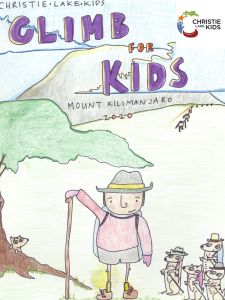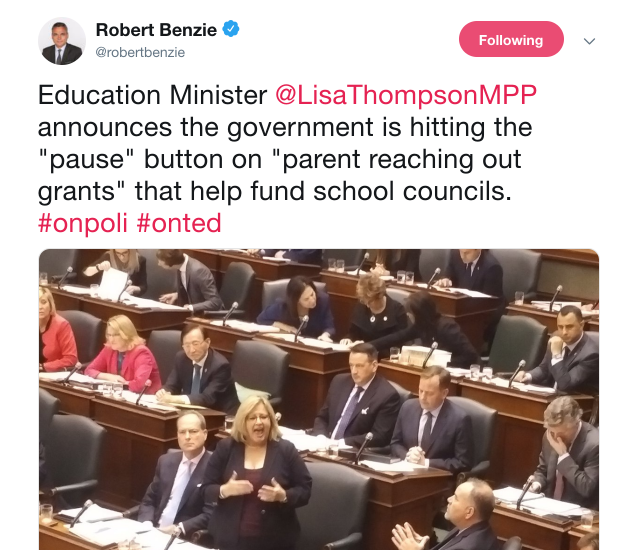
Everything we do these days needs to be seen through the lens of justice. In this second article on living in the age of incivility, I want to focus on the tools we use in our schools to deal with injustice.
One of the main tools for many years has been the WE Foundation. Fortunately, the days of WE dominance seem to be coming to an end. Unfortunately, this is not happening because people, educators finally saw through the mist of corporate charity but because they got caught in a national scandal.
I was always quietly appalled by the spell WE held over our schools. WE was always about making us feel good, making us look like we were doing something to roll back poverty in the Global South. To my mind, that was never the case. WE never questioned the imbalance that exists in the world and they certainly never exposed the incredible role we have played as settlers and exploiters here in Canada and in the Global South.
They were the good story. That is why boards like my own (Ottawa Catholic) were happy to sign up with WE and why they encouraged participation in their extravaganzas for students and even booked them for one of our annual staff conference days (Christian Community Day).
We never questioned their lack of analysis or their unwillingness to talk about the root causes of poverty and injustice in our world. As Catholics with a rooting in social justice, we should have known better, but how many Catholics have ever examined the social justice roots of our faith? In the vast majority of cases, it was more important to make sure our students felt good about themselves. Rarely did educators and administrators take the next step to challenge the roots of injustice, racism, poverty, and inequality that are endemic in our society.
Look at the quote by Pope Francis below – this is what we should be talking about in our schools – it is not about feeling good about yourself, it is all about becoming uncomfortable with your wealth and privilege and recognizing how we have been the designers of an unequal, unjust world.
… the mere fact that some people are born in places with fewer resources or less development does not justify the fact that they are living with less dignity. It must be reiterated that “the more fortunate should renounce some of their rights so as to place their goods more generously at the service of others.” To speak properly of our own rights, we need to broaden our perspective and to hear the plea of other peoples and other regions than those of our own country. We need to grow in a solidarity which “would allow all peoples to become the artisans of their destiny,” since “every person is called to self-fulfillment.
– Pope Francis, Evangelii Gaudium 190
We can go beyond this to look at WE as the Canadian exemplar of white saviouism. David Jefferess, a UBC scholar writes about this in his article, WE Charity and the white saviour complex.
White saviourism is not simply a personality trait that critics can attribute to the Kielburgers or voluntourists alone. In his explanation of the “white savior industrial complex,” Teju Cole does not distinguish between genuine humanitarians and self-seeking ones, but focuses on the construction and material causes of global poverty. Cole explains that the white saviour looks at places like Africa and sees only desperation, consequently failing to understand why the misery exists in the first place.
This is an important article and it would be a good one to read to get a sense of how we have been taken in by WE. We have been lazy and we have not wanted to think things through. We don’t really want to examine the roots of poverty, racism, inequality, and injustice. We certainly do want to become uncomfortable.
Corporations have adopted We to acquire a ‘brand halo‘, a way to attach any the company on to the coattails of WE at rallies that focus mainly on intermediate aged school kids. The WE rallies have been a great way to encourage brand loyalty, sell more soap. As Vice writes:
A page of WE’s website, advertising Marc Kielburger as a paid speaker, touts his insights into “purposeful and profitable business strategies.” The page, which has since been updated to remove that language, boasts that Marc can help teach strategies to “inspire brand fanatics to stay loyal to you, your company, and your cause (and) add a halo effect to your product.”
Vice: Justin Trudeau’s Billion-Dollar Scandal Is a Story of Power, Branding, and Charity July 2020
WE has nothing really to do with changing our mindsets. It is a cynical organization that believes the only way to talk about the Global South to students is by putting on a rock show. Bring out the celebrities and we will change the world. After the show, you can go home, feel good and forget about the global imbalance that grows every day. No need to question the status quo, you just got a t-shirt.
Next, incivility in the school system – don’t ever rock the boat.























